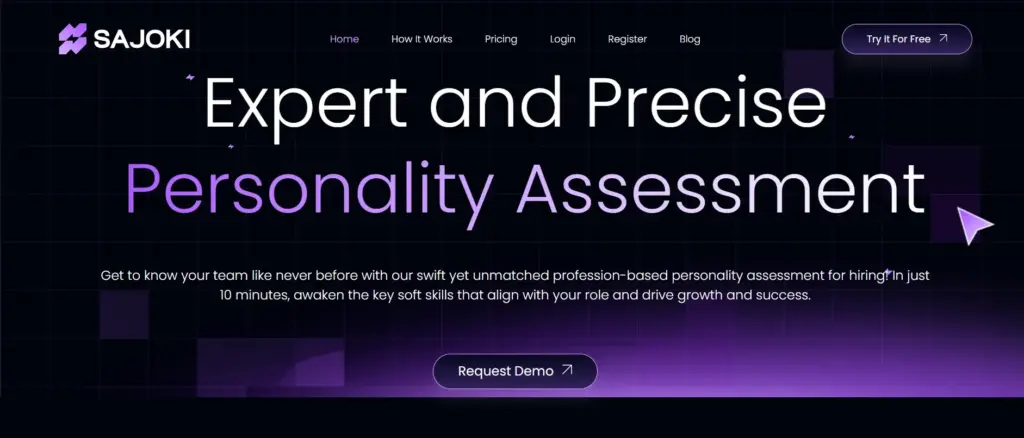Dependability, a common subject in workforces, is a very powerful skill. It impacts how a person is perceived, whether they can be trusted with confidential or valuable information. However, when the subject of dependability arises, people often wonder the type of skill it is.
So, is dependability a soft skill?
Absolutely! Dependability is a soft skill due to its relation to natural characteristics. It is an interpersonal quality, often impacted by your values. It is a skill you learn through years of personal experience, not through textbooks or classrooms.
Stay tuned as we explore dependability and what makes it a soft skill. We will also discuss how to improve this skill and its impact on workplaces. So, let’s get started!
What Is Dependability?
Can your friends or colleagues fully trust and rely on you? If yes, you probably have already mastered the skill of dependability. Simply put, dependability refers to the quality of being reliable and trustworthy.
This skill demonstrates your ability to commit to and complete a responsibility with diligence. It is a testament to whether people can count on you with something important. At its core, dependability skills are about consistency and staying true to your words.
Dependability may be as simple as showing up on time to an event. In a more professional context, dependability could look like taking the initiative, completing tasks, and meeting deadlines without continuous supervision.
Regardless of personal or professional contexts, dependability is all about standing up in situations where you’re needed. It is about keeping yourself grounded and accountable.
Why Is Dependability A Soft Skill? : 4 Key Reasons
Let’s dive right into the main discourse of this blog, is dependability a soft skill? Yes, it is indeed a soft skill, and here is why.
1. Character-Based Trait
Dependability is a reflection of who you are. It is associated with your character and interpersonal qualities. Dependability is based on traits like integrity, diligence, and consistency that are shaped by your innate values or actions.
2. Learned Through Experience
If dependability were a hard skill, you would be getting years of training on it. However, in reality, dependability can’t be trained or taught. This skill is something you acquire naturally over a certain period. Associated with your natural characteristics, you build up this skill through real-world experiences.
Dependability has nothing to do with your academic accomplishments. Rather, good dependability skills are a result of how you carry and develop yourself throughout life.
3. Applies Across All Job Sectors
The importance of dependability isn’t limited to a specific field. Every industry is built upon dependable employees. Dependability means your employers can trust you and your abilities. It allows them to assign you tasks with confidence, knowing you will put your best foot forward.
4. Not Measurable But Noticeable
Hard skills can easily be tested or graded. They can even be certified. However, there is no specific way to measure soft skills like dependability. There is no official scoreboard for these skills. However, people around you will always notice whether you’re dependable.
Be it your manager or your family, your efforts will not go wasted. They will understand who to count on.
How Dependability Impacts The Workplace
Dependability skills have a significant impact on the workplace. In fact, dependable employees are the key to operational success. They contribute to the workflow in many ways, which we will look at now.
1. Builds Trust And Rapport
Dependability skills are crucial for developing trust. When an employee proves to be dependable, it allows managers and team leaders to trust them. It helps them understand how reliable the employee is. This often leads to better credibility, helping them realize the true potential of their employees.
2. Supports Team Collaboration
Dependable employees are often the reason behind smooth collaboration among teams. They are the ones taking the leading responsibilities and meeting deadlines effectively. Such employees help everyone stay on track, ensuring projects keep moving forward without any obstacles.
Moreover, they help to reduce any internal friction. There can be tensions among teams regarding taking initiatives or fulfilling certain duties. This is where dependable employees truly shine. They often offer steady hands that prevent things from falling apart.
3. Increases Operational Flow
With overflowing deadlines and interdependent tasks, operations should be handled by someone who is cautious of the urgency of the task. Dependable people are the perfect employees for this.
Dependability impacts both individual and team efficiency in professional settings. Trustworthy employees minimize the need for consistent supervision and set goals for the perfect completion of each task.
Can You Develop Dependability?
Yes, one can build their dependability skills over time. While some might show innate dependability, it’s not a trademark for all. People can gradually learn to be more reliable with mindful practice.
How To Develop Dependability
Here are some practical tips to help you work on your dependability skills.
-
Practice Self-Reflection
Reflect on your habits that might impact your reliability. Try to understand how much you can actually handle without overcommitting. Additionally, try working on identifying trends or patterns where you tend to fall short, like missing a deadline.
-
Fulfil Your Promises
Follow through with what you’re committing to. Try your best to stick to even the smallest promises. Moreover, only make commitments you can keep. It’s best to focus on the quality of work you’re committing to, instead of its quantity.
-
Maintain proper communication
Let everyone involved with the task know about your responsibilities. Maintain a clear line of communication regarding how and when you will be delivering the work. More importantly, be clear if delays or obstacles come up, especially if there’s a deadline.
-
Practice Time Management
If someone is relying on you for something, you better work on maintaining your time and meeting deadlines. You can start by avoiding procrastination. Assess how much time you can spend on the task and build a schedule as needed.
-
Be Accountable
The key to being dependable is holding yourself accountable. Try to understand the impact of your commitment, realize that it affects the chain of work. Moreover, try to own your mistakes without blaming others. Learn from setbacks and avoid repeating them.
Which Tool to Use For Assessing Dependability Soft Skills
As an employer, you must have a good understanding of your prospective job candidate’s dependability skills. Even with a perfect resume, an unreliable candidate might compromise the efficiency of your company.
To check a job candidate’s soft skills, like dependability, use SAJOKI. It is an AI-powered tool for pre-employment assessments. SAJOKI focuses on highlighting role-specific soft skills. So, it is perfect for figuring out the different soft skills a job role might require.
While SAJOKI mainly provides essential insights for employers, job seekers can also benefit from it. It can help individuals understand their strong skills that can be used for specific career adjustments.
How To Use SAJOKI?
You can access SAJOKI’s soft skill assessment with a few simple steps. Before starting, be sure to check out SAJOKI’s pricing, which offers versatile plans to accommodate everyone’s needs.
1. Create An Account
Create an account on the SAJOKI-Personality Assessment Tool as a company and log in.
2. Create A Test
Once you have logged in, click on the Create option. You will be directed to a new page where you can create the test and a job description.
You will be asked to enter a job title. So, you have to enter the job title for which you want to test the dependability skill of the candidates. Then, click on Get AI-generated Job Description, and click on Generate Test. This will create the test.
3. Send Assessment Code To Job Candidates
You will be given a code to access the assessment. Share it with your job candidates.
4. AI-Based Profile Generation
After the candidates are done, SAJOKI will analyze each candidate’s response with AI. After the AI analysis is done, you will receive personalized candidate profiles that will help you get a clearer understanding of who you’re about to hire.
FAQ
Q. How does dependability impact leadership?
A dependable person can deliver high-impact results efficiently. Their dependability skills are a testament to how well they can lead teams, keeping them accountable while providing promising results.
Q. How important is dependability in a relationship?
Dependability helps build a stronger, more reliable connection in any relationship. It creates the opportunity for emotional stability in a relationship.
Conclusion
To sum up, is dependability a soft skill? Yes, it certainly classifies as a soft skill. Dependability is an interpersonal trait, it showcases who you are and how you interact with others. Moreover, this skill is grounded not just in your innate values but also in what you learn throughout real-life experience.
Dependability skills are highly valued in the workplace. This skill, irrespective of the job, will prove that you are diligent. It shows that you can be trusted with important roles. So, don’t overlook this soft skill, it might be the reason for your next promotion!








